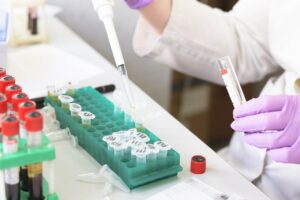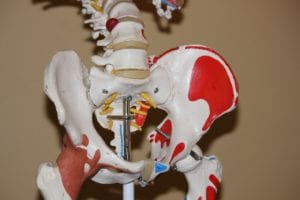Rheumatoid Arthritis (RA)
What is rheumatoid arthritis (RA)?
Simply put, RA is a chronic inflammatory disorder affecting many joints, including those in the hands and feet. The course of RA is hard to predict. It usually progresses slowly over months or years, but in some people, RA doesn’t get worse, and symptoms plateau. In rare cases, symptoms come on rapidly, within mere days. Symptoms can come and go. RA patients may have periods of remission when joint pain goes away on its own for a while. However, if the disease progresses, joint pain can restrict simple movements, such as your ability to grip, and daily activities, such as climbing stairs. It is a common cause of permanent disability. However, early treatment may control the disease and keep it from getting worse. There are more than 200,000 new cases of RA in the U.S. per year. RA has a worldwide distribution with an estimated prevalence of 1 to 2%. Prevalence increases with age, approaching 5% in women over age 55. Both incidence and prevalence of RA are two to three times greater in women than in men.What are the signs and symptoms of RA?
RA requires a medical diagnosis. It affects joint linings, causing painful swelling. Over long periods, the inflammation associated with RA can cause bone erosion and joint deformity. People may experience:- Pain areas in the joints, back, or muscles
- Stiffness, swelling, tenderness, or weakness in joints
- Fatigue, anemia, or malaise in the whole body
- Lumps or redness in the skin
- Bumps or swelling on the fingers
- Flares, dry mouth, physical deformity, or sensation of pins and needles
How is RA diagnosed?
RA can be difficult to diagnose in its early stages because the early signs and symptoms mimic those of many other diseases. There isn’t a blood test or physical finding to confirm the diagnosis. During the physical exam, your doctor will check your joints for swelling, redness, and warmth. He or she may also check your reflexes and muscle strength.What is the treatment for RA?
The treatment of RA consists of:- Inflammation medication
- Pain medication
- Change in diet
- Weight management
- Massage
- Exercise
- Orthoses
- Heat and cold
- Acupuncture
- Transcutaneous electrical nerve stimulation (TENS)
Where can I learn more about rheumatoid arthritis (RA)?
Rheumatoid Arthritis (RA) Articles

FDA Approves Tyenne, an Actemra Biosimilar for Autoinflammatory Diseases
Jessica Lynn
March 22, 2024
Read More »

Rheumatoid Arthritis: Six Biomarkers Could Indicate Cardiovascular Disease Risk
James Moore
March 13, 2024
Read More »

Rheumatoid Arthritis: Analysis Suggests Efficacy for Combination in Some Patients
Rose Duesterwald
December 28, 2023
Read More »


Celiac Disease Could Increase Risk of Rheumatoid Arthritis and Juvenile Idiopathic Arthritis
Jessica Lynn
November 6, 2023
Read More »

ABBV-3373 Shows Promise for Rheumatoid Arthritis (RA), Phase 2a Data Shows
Jessica Lynn
March 3, 2023
Read More »

New ACR Guideline Address Integrative Health and Exercise for Rheumatoid Arthritis (RA)
Jessica Lynn
March 1, 2023
Read More »




